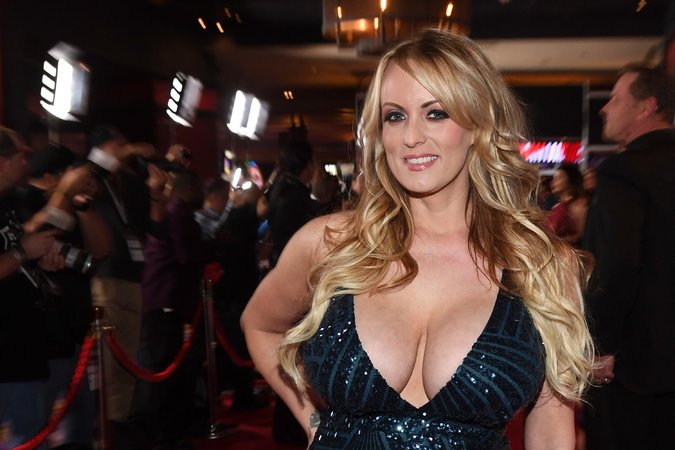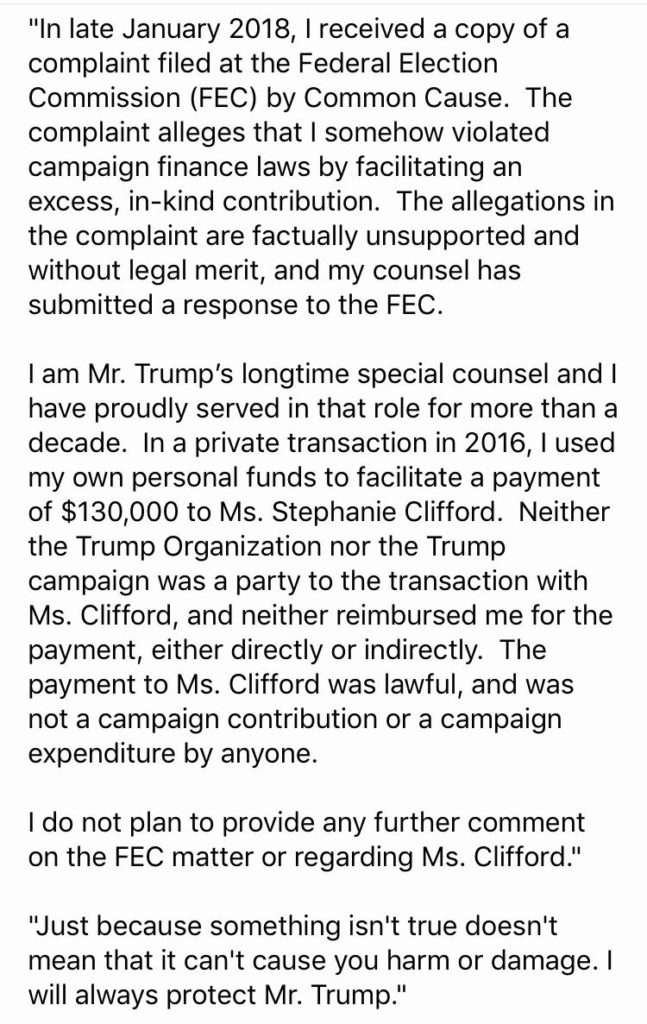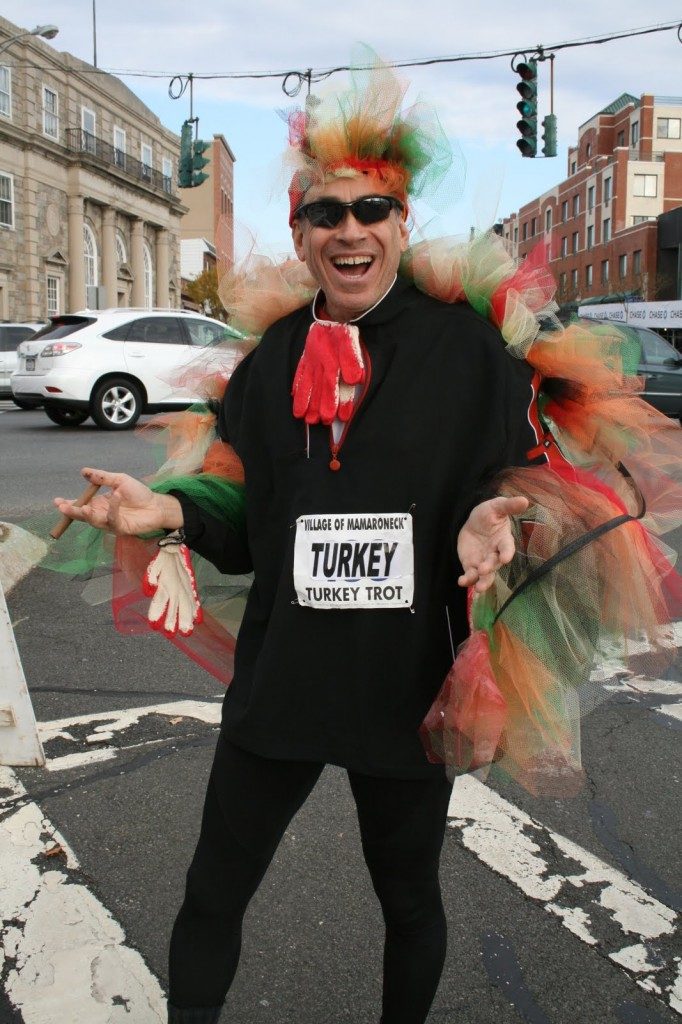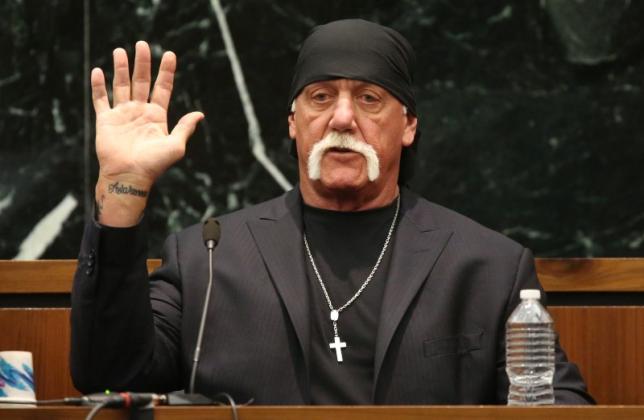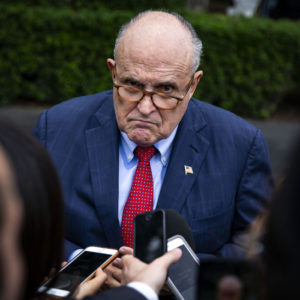
Racing around the interwebs today is the fact that New York has suspended Rudy Giuliani from practicing law. It’s an interim suspension — he hasn’t had a hearing yet. That is a tough thing to get in New York, but it happened for two reasons: The “uncontroverted claims of professional misconduct” and his “conduct immediately threatens the public interest.”
The fundamental issues regarding the claims of misconduct deal with his assertions of voter fraud in Pennsylvania, Georgia and Arizona. Over and over again he screamed fraud. The Appellate Division (First Department) wrote that Giuliani “communicated demonstrably false and misleading statements to courts, lawmakers and the public at large in his capacity as lawyer for former President Donald J. Trump and the Trump campaign in connection with Trump’s failed effort at reelection in 2020.”
The problem, of course, is that when lawyers make statements of fact in their capacity as a lawyer (not in their capacity as the Tooth Fairy or April Fool’s hoakxster) we are expected to have evidence to support our statements.
For the vast majority of people, lying about the election might well be protected First Amendment speech (unless with pitchforks and torches inland, storming the castle Capitol is urged. But that’s for another day.)
But the First Amendment doesn’t apply the same way if you are handed the privilege of representing people in court. You get something but there is a price for it. We are not free to lie to a court. The Court here wrote:
“It is long recognized that “speech by an attorney is subject to greater regulation than speech by others”. Unlike lay persons, an attorney is “a professional trained in the art of persuasion” . As officers of the court, attorneys are “an intimate and trusted and essential part of the machinery of justice”. In other words, they are perceived by the public to be in a position of knowledge, and therefore, “a crucial source of information and opinion.”
So while the lawyer hat is on, we play by different rules. We still have our First Amendment rights to spew nonsense if we like, just not while wearing that particular chapeau.
The Court then launches into a dizzying and well-documented array of particulars regarding his conduct in Pennsylvania, Georgia and Arizona. It’s a helluva list that includes his conduct at Four Seasons Total Landscaping, boxer Joe Frazier, claims of dead people voting, boxes or suitcases of ballots under desks and thousands of undocumented voters.
The Court painstakingly discusses how each was utterly and completely unsupported by evidence. One example of many is claiming that Pennsylvania mailed out 1.82M absentee ballots but that 2.59M were counted. This was false. In fact, 3.08M had been set out.
But being wrong is one thing. Repeating it after learning you were wrong is a different story. The Court wrote: “Notwithstanding the true facts, respondent repeatedly advanced false statements that there were 600,000 to 700,000 fabricated mail-in ballots, which were never sent to voters in advance of the election.”
The Court then proceeds to document numerous times he made the false statements after learning they were false. And continued making false claims even after the Attorney Grievance Committee brought this motion against him!
The Court went on to document his false claims that tens of thousands of dead people voted in Philadelphia.
In Georgia, Giuliani claimed to have “hundreds of pages of affidavits and declarations …that document gross irregularities…” including tens of thousands of underage voters. He produced nothing. Nada. Bupkus.
And in Arizona he made utterly unsubstantiated comments that tens of thousands of undocumented people had voted, despite the fact that “no statewide check on undocumented noncitizens had been performed.”
While the hearing hasn’t been held, Giuliani did have an opportunity to be heard on the interim suspension. There was a motion and he failed to come up with the goods. Likely because he doesn’t have them.
While many will write stories about this event it is the evidence part that really jumped off the page. Lawyers are supposed to have it when making claims. Giuliani claimed he had it. But he couldn’t produce it. And he did it with his lawyer hat on.
The second part of the decision deals with conduct threatening the public interest, because lying alone isn’t generally likely to lead to a suspension before a hearing (though the courts are pretty damn sensitive when it comes to client funds). One of the standards a court may use is “conduct immediately threatening the public interest.” (22 NYCRR 1240.9[a])
At this point the Court gets to the heart of the matter, that Giuliani was using his lawyer’s fedora to undermine both the practice of law and faith in the legal profession, and democracy itself, with his lies. And that includes the January 6 insurrection :
The hallmark of our democracy is predicated on free and fair elections. False statements intended to foment a loss of confidence in our elections and resulting loss of confidence in government generally damage the proper functioning of a free society. When those false statements are made by an attorney, it also erodes the public’s confidence in the integrity of attorneys admitted to our bar and damages the profession’s role as a crucial source of reliable information (Matter of Nearing, 16 AD2d at 516). It tarnishes the reputation of the entire legal profession and its mandate to act as a trusted and essential part of the machinery of justice (Ohralik v Ohio State Bar Assn, 436 US at 447). Where, as here, the false statements are being made by respondent, acting with the authority of being an attorney, and using his large megaphone, the harm is magnified. One only has to look at the ongoing present public discord over the 2020 election, which erupted into violence, insurrection and death on January 6, 2021 at the U.S. Capitol, to understand the extent of the damage that can be done when the public is misled by false information about the elections. The AGC contends that respondent’s misconduct directly inflamed tensions that bubbled over into the events of January 6, 2021 in this nation’s Capitol. Respondent’s response is that no causal nexus can be shown between his conduct and those events. We need not decide any issue of “causal nexus” to understand that the falsehoods themselves cause harm. This event only emphasizes the larger point that the broad dissemination of false statements, casting doubt on the legitimacy of thousands of validly cast votes, is corrosive to the public’s trust in our most important democratic institutions.
The misrepresentations are so well documented that I am guessing that he will end out with a real suspension after a hearing, or disbarment. He will get another shot to defend, he will have competent counsel, but this will be an uphill battle for him. If he had evidence that he was merely mistaken, and not fabricating crap, he would have laid that on the table.
A final note, and I can’t help but think that this was a significant factor in deciding to suspend before a hearing: Giuliani claimed in his response that he is not a threat “because he has and will continue to exercise personal discipline to forbear from discussing these matters in public anymore. He also claims that because legal matters following the 2020 election have concluded, he will no longer be making any statements about the election under the authority of being an attorney.”
And yet, the Court found that, “Notwithstanding respondent’s claim that he has exercised self-restraint by not publicly commenting on the election, there are numerous instances demonstrating the opposite.”
The Court found, “We cannot rely on respondent’s representations that he will exercise restraint while these proceedings are pending.”
If there’s one thing a Grievance Committee really, really hates, it’s when lawyers lie to them.
